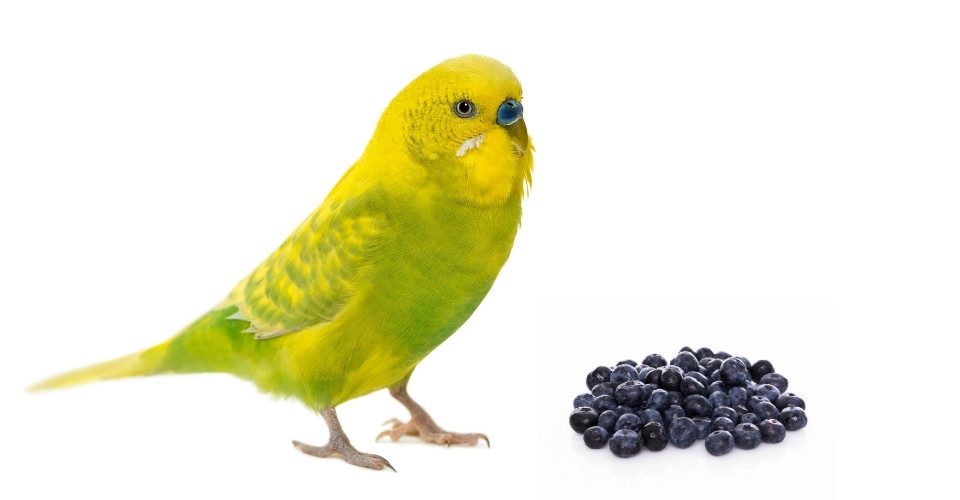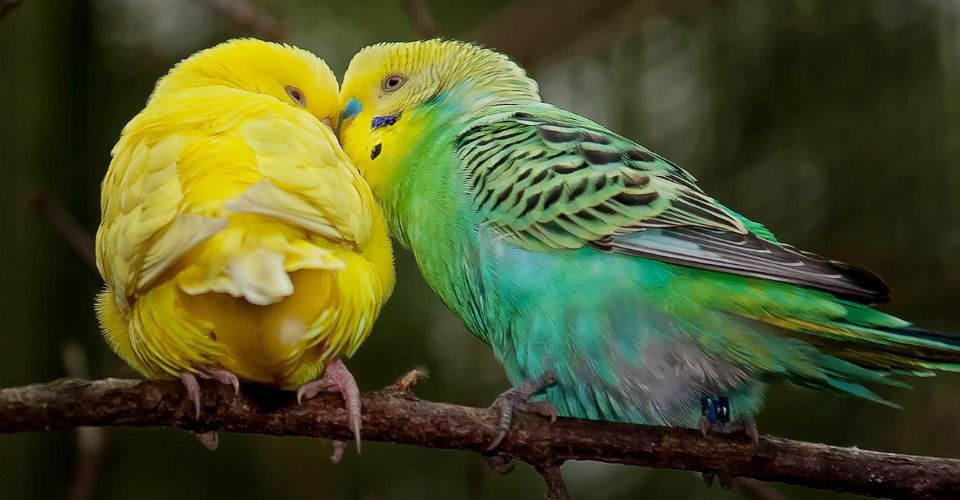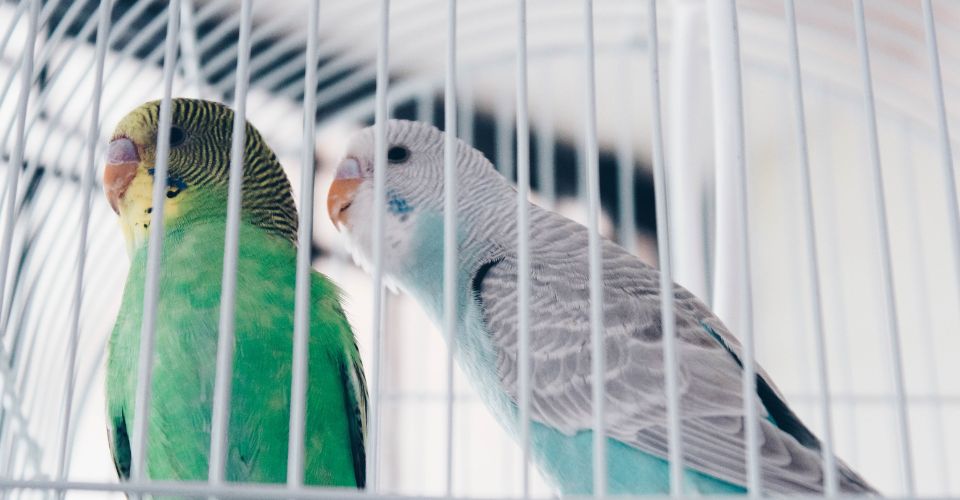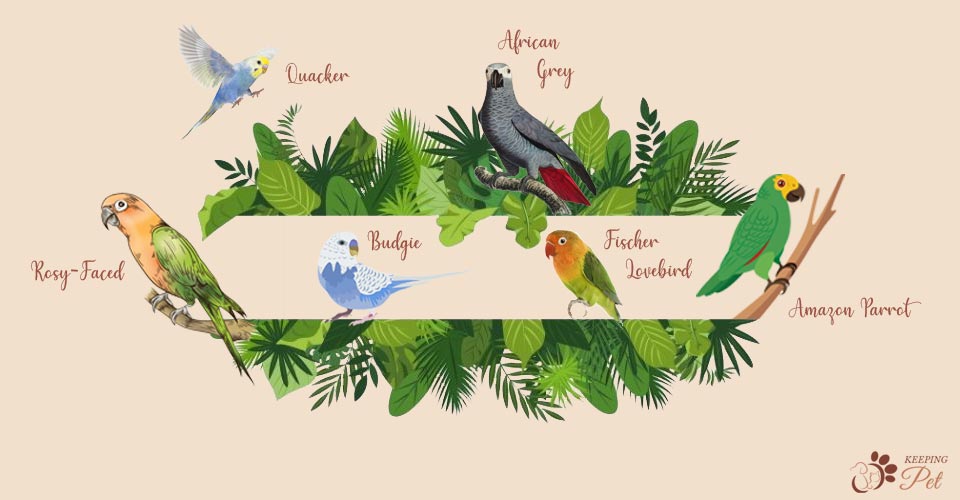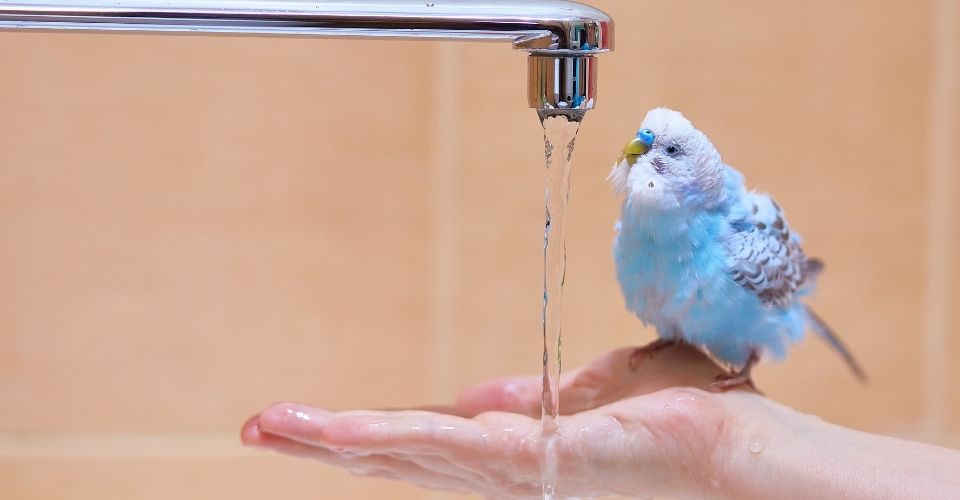Parakeets are curious birds. They like to try everything they find in their cages or their owners eat. But owing to their sensitive digestive systems, not all they lay their claws on are suitable for their health.
What about blueberries? Can parakeets eat blueberries? What are the benefits and health hazards of parakeets eating blueberries?
Here we will try to cover every aspect of parakeets and blueberries. Let’s begin.
Can Parakeets Eat Blueberries
Can parakeets eat blueberries? Yes, they definitely can eat blueberries.
Blueberries are small and sweet fruit, having a perfect size for parakeets—you don’t need to cut them into small chunks. Despite their small size and sweetness, blueberries are healthy fruit with high vitamin and antioxidant content.
Parakeets demand a lot of attention and care, especially when it came to feeding.
If your bird has never eaten them before, introduce the fruit in a phased manner. First, a small chunk, then increase the quantity a little. If your parakeet loves it, keep it feeding blueberries. But how much is enough? And what are the nutritional benefits of parakeets eating blueberries?
Are Blueberries Healthy for Parakeets
As discussed above, blueberries are rich in vitamins and antioxidants. For humans, blueberries are considered one of the healthiest snacks thanks to their immunity-boosting abilities and absence of cholesterol. Similarly, for birds, they are not just a treat to share, they have many excellent health benefits as well.
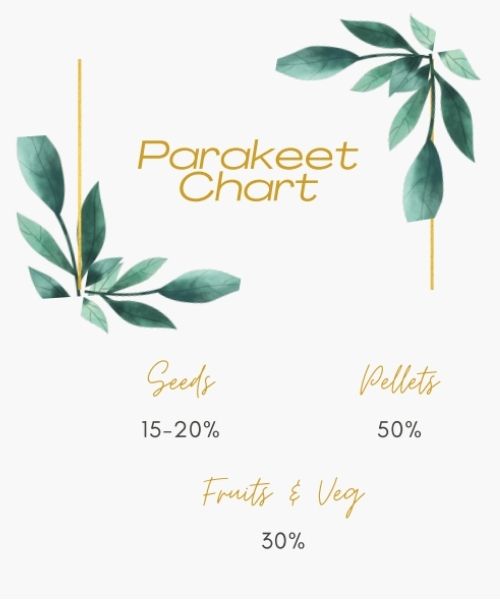
Fruits and vegetables constitute 30% of a parakeet’s diet (as shown in the food chart above). Parakeet owners always want to provide them with fruits with great nutritional value for enhancing their birds’ immunity and overall health. To get a detailed overview of the nutritional benefits of blueberries, let’s look at the nutritional chart given below.
Blueberries Nutritional Value
Blueberries are high in nutrients and low in calories. They are small fruits, having a size of merely 0.4 inches and a weight of around 0.3 grams. While high-bush blueberries are the most cultivated type of blueberries in the US, it is wild or low-bush blueberries that are richer in vitamins and antioxidants. Types of nutrients in blueberries are mentioned below.
| Nutrients | 1 Blueberry (0.3 g) |
| Calories | 0.17 g |
| Protein | 0.002 g |
| Sugar | 0.03 g |
| Carbohydrates | 0.043 g |
| Fiber | 0.01 g |
| Fat | 0.001 g |
| Vitamin and Water Content | Percentage in 1 Berry |
| Water | 84% |
| Vitamin C | 24% |
| Vitamin K | 36% |
| Manganese | 24% |
1. Vitamin C
Vitamin C is a micronutrient, which boosts the immune system of parakeets. It helps parakeets in building a solid immunity against infections and ensures good health by preventing oxidative stress. It also:
- Stabilizes sugar and cholesterol levels in the blood
- Helps in the development of bones and muscles in parakeets
- Controls the heartbeat rate
2. Vitamin K
It is responsible for the transport of calcium throughout the body. That is why it helps in the development of bones and beaks.
3. Manganese
It is a mineral found in blueberries that strengthens the bones and beaks of parakeets and promotes healthy feathers’ growth after molting.
4. Antioxidants
Blueberries contain the highest quantity of antioxidants among all the vegetables and fruits. Antioxidants remove the free radicals in the bird’s body that damage the cells, causing premature aging or cancer.
Oxidative stress is caused when a bird lacks antioxidants in its body, leading to poor health and reproduction.
Blueberries Seeds Benefits
Blueberries seeds are relatively small from other fruit seeds. They are not considered a health hazard for your parakeet as they are small and can easily be digested without affecting the bird’s stomach.
Most owners are worried regarding blueberry seeds and whether it has any value for their birds or not. There is no need to remove seeds from them—it is alright to feed blueberries as a whole.
Some parakeets even enjoy these tiny seeds and tend to like picking them from berries. These seeds are rich in minerals, which help in the development of feathers and wings.
Normal Portion of Blueberries to Feed
As shown in the parakeet food chart above, fruits and vegetables make up 30% of the parakeets’ daily meals. Blueberries should not be a part of the staple diet of parakeets.
It should only be given as a treat or along with other food (primarily seed-based or pellet-based). Generally, one berry per day, 3-4 times a week, is considered healthy for parakeets. Do not feed them more than that—while it has benefits, it can have adverse consequences if given in excess.
How to Feed Blueberries to Parakeets
Blueberries are easy to be fed to parakeets; they can be given as whole or cut into chunks—but cutting is usually not needed. That said, there are a few things that should be kept in mind before giving your little sensitive bird this delicious and juicy fruit.
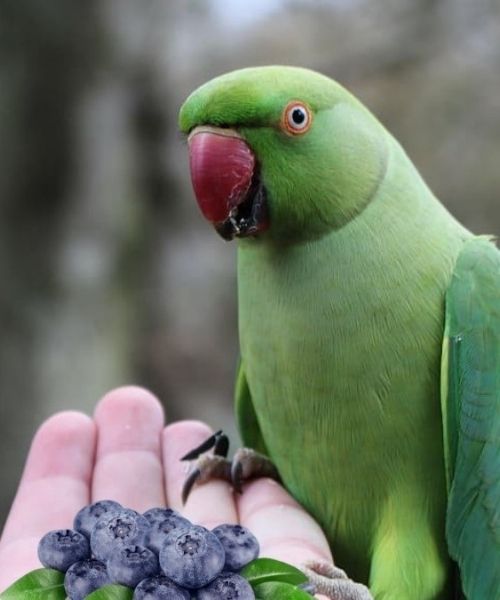
1. Washing for Pesticides
Wash blueberries thoroughly before feeding them to your parakeet. Usually, they are sprayed with chemicals that are harmful and toxic to parakeets.
Because of their small size, it is very difficult to wash them properly. Therefore, the best solution is to place them in baking soda and water solution for 10-15 minutes to remove all pesticides and harmful chemicals from them.
2. Feeding
Few people are worried regarding blueberry seeds, but as discussed above, they are not hazardous for parakeets. So, there is no need to handpick them from fruit.
After washing, give them to your bird. If it hesitates to eat them, try hand-feeding them. Most parakeets enjoy treats when their owners hand-feed them.
You can also mix the fruit with other vegetables or fruits. But it should be given along with seed- and pellet-based food, and not as the main course.
Are Blueberries Dangerous For Parakeets
As the old maxim goes, “excess of everything is bad”. If fed in moderation, blueberries are a healthy snack or treat for parakeets. But once certain limits are exceeded, they can cause serious health issues in parakeets. Blueberries contain a large amount of fructose. Consumption of too much sugar can cause obesity or diabetes in parakeets.
1) Diabetes
Diabetes is a severe disease caused by excessively feeding parakeets fruits rich in sugar. If your bird is showing the signs mentioned below, immediately take it to a vet, as diabetes can be life-threatening for parakeets.
- Infectious body
- Prolonged illness
- Sudden weight loss
- Increase water intake
- Urine more often than usual
- Coma or seizures
2) Obesity
Sugar is one of the major causes of obesity in parakeets. If a bird frequently eats sweet treats or fruits like blueberries, it will start growing obese. If not taken care of properly, it can cause:
- Hemorrhage.
- Blood clotting, leads to an improper heartbeat
- Prolonged sickness
Can Parakeets Eat Dried Blueberries?
The answer to this is, yes, parakeets enjoy dried blueberries more than their fresh counterparts. They are rich in sugar; thus, it is advised that dried berries be fed in moderation. Overdo it, and they will cause the issues mentioned above.
While they can eat dried blueberries and, in fact, like them, it is best to feed them fresh blueberries. They have a comparatively low sugar content and are healthy for your little bird.
Can parakeets eat blueberries? Yes. Like other berries, such as strawberries, parakeets can enjoy blueberries along with their seeds. They are rich in minerals and antioxidants and have many health benefits for birds. Like all other fruits, blueberries should also be fed in moderation.

